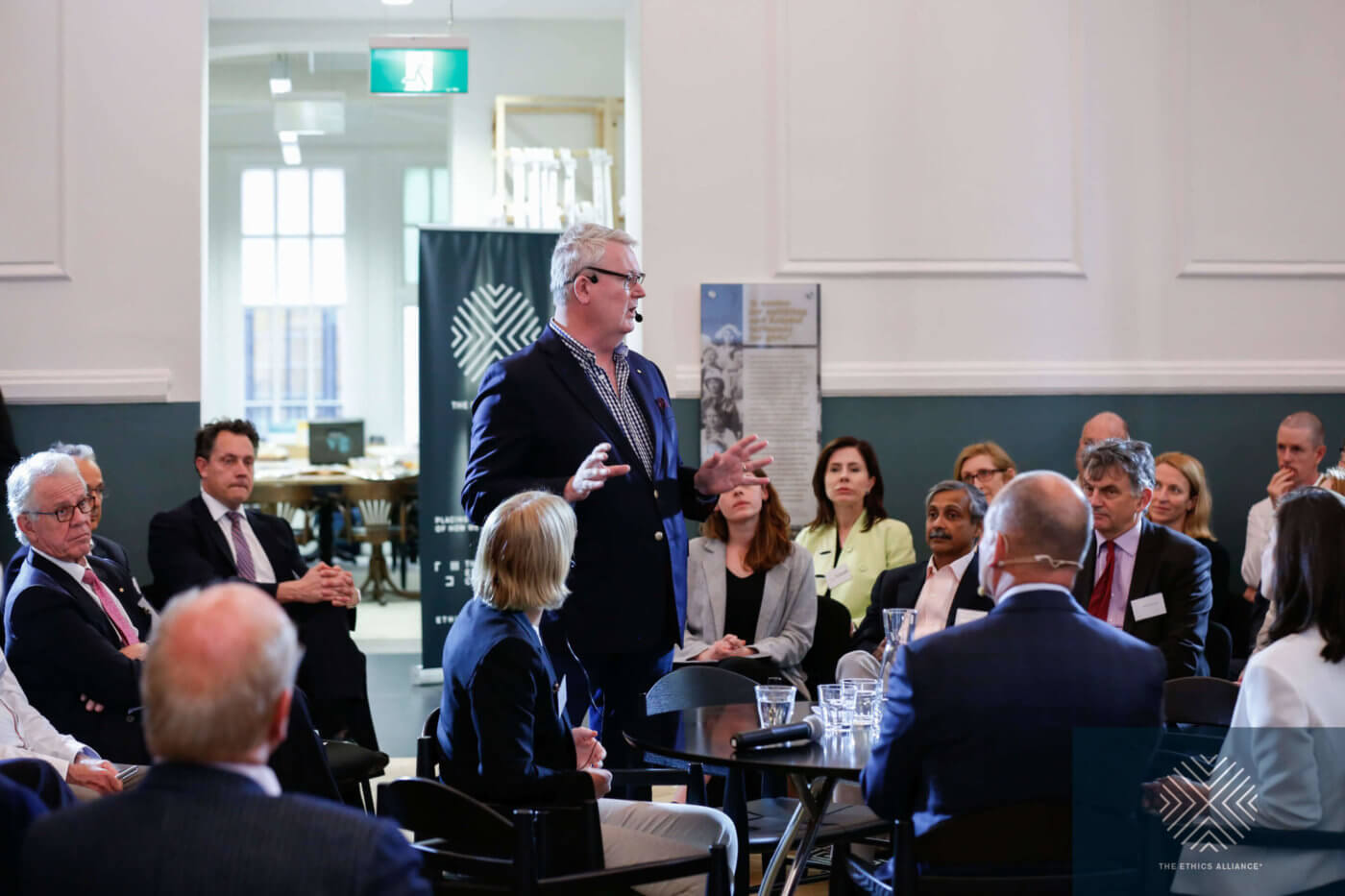
Is there such a thing as ethical investing?
Opinion + AnalysisBusiness + Leadership
BY The Ethics Centre 22 APR 2024
If you’re looking to start investing in the stock market (and you’ve stumbled across this article), chances are you might be investigating how you can do it ethically – without supporting companies that are actively causing harm to the world.
“Ethical investing” has no fixed definition in Australia, Life and Shares host Cris Parker points out in The Ethics Centre’s latest podcast. Susheela Peres Da Costa, Chair of the Responsible Investment Association of Australasia (RIAA), says typically ethical, or responsible, investing is about, “consumers assuming something is screened out of the portfolio – what you don’t invest in is a typical ethical investment question.”
But finding out which companies are involved in activities you don’t want to financially support is not as cut and dried as you might hope.
“There’s a lot of seductively simple solutions out there,” Peres Da Costa says, such as points-based system ESG (Environmental, Social and Governance Investing).
“Some of the most profitable companies involved in some of the most harmful activities actually do very well on some of the scoring systems,” Da Costa says, “because they’ve got great volunteering programs and programs for replacing their light bulbs with LEDs, and they give a lot of money to charity. But investors need to be smart about not falling for the gloss. As someone who’s professionally analysed company reports, I would never, ever believe anything in a value statement…”
“However, we really need to address the elephant in the room, which is actually the cost. It is just so expensive to obtain proper financial advice – to give you an example, the median price in Australia is $5,000 per year.”
Even if you don’t think of yourself as being in the stock market, if you have super in Australia, then your super fund is investing your money on your behalf. Happily, many super funds offer investment packages classified as “sustainable”, which aim to buy into clean and renewable energy shares and avoid companies involved in fossil fuels.
The RIAA ranks Australian super funds on their responsible investment approaches: its Responsible Investment Super Studies highlight funds that choose shares in companies that aim to do good for people and the earth and screen out those with poor or questionable practices.
Still, the waters are murky as to which companies are doing the most harm, and which are trying to do good. As Life and Shares host Cris Parker points out, one of the best performing sustainable exchange traded funds in the past year had a large holding in mining company BHP.
But that’s not necessarily a bad thing, says Da Costa. “It’s easy to think about mining companies as those that dig up the ground, tear down the trees and all those things. But they’re also the ones that are producing the lithium, for example, and all the rare earths that we need to transition from our dependence on fossil fuels. So I think one of the things you have to be really careful of is assuming that a company is one thing, good or bad.”
“One of the things you have to be really careful of is assuming that a company is one thing, good or bad.” – Peres Da Costa
Of course, there’s no legislation to prevent you from investing in whatever you want – and if you don’t buy shares in a particular company, someone else probably will. Unless you have the financial power to buy a controlling stake, you won’t be able to control board decisions as a shareholder. But it doesn’t mean you can’t try.
“If your objective is to have an impact in the world, then the levers that you have available to you are very different if you’re a consumer versus an institution, and you need to have a theory of change about how you have that impact,” Da Costa says.
A theory of change is a conceptual model outlining the specific actions and interventions your investments will use to achieve the desired impact. In the case of sustainability and climate change, this means putting your money into renewables, divesting from fossil fuel companies, and being an active shareholder – paying attention to what your invested companies are doing, and wielding your shareholder voting power at AGMs (Annual General Meetings).
One simple action that should be on every good global citizen’s to-do list is checking your super fund’s ethical position and investments, along with checking where your bank invests and if your power company uses renewables or coal and gas.
Looking to your own values and ethics, and using those as a guide to what you will and won’t invest in, is probably your best personal guide for how to invest ethically.
For instance, does it bother you to earn dividends from companies involved in mining and fossil fuels, weapons manufacturing, supply chains that aren’t signatories to sustainability or anti-slavery regulation, and alcohol, tobacco, or unethical pharmaceutical companies? Are you willing to make trade-offs and invest in a company doing harm in one area but good in another? As Da Costa says, you can’t assume “a company is one thing, good or bad.”
Whether you’re actively trading shares and avidly following financial news or just tinkering with your super investment options, the stock market will always be an ethical minefield. But with research and the knowledge of how to take control of your money and how it’s used, you can start investing more responsibly and purposefully.
Life and Shares unpicks the share market so you can make decisions you’ll be proud of. Listen now on Spotify and Apple Podcasts.

Ethics in your inbox.
Get the latest inspiration, intelligence, events & more.
By signing up you agree to our privacy policy
You might be interested in…
Opinion + Analysis
Business + Leadership
The Ethics Alliance: Why now?
Explainer
Business + Leadership
Ethics Explainer: Social license to operate
Opinion + Analysis
Business + Leadership, Health + Wellbeing
Tips on how to find meaningful work
Opinion + Analysis
Business + Leadership




